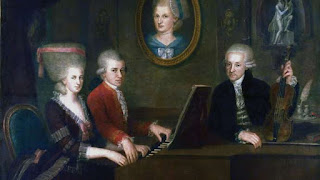With "Against Nature" Huysmans made a concerted effort to break with Naturalism, which he criticized in the preface to the novel for "treading water", although many features of Naturalism are still there. Huysmans wrote to Zola before finishing the novel explaining his new project and forewarning him of his shift in style, but nonetheless Zola took almost personal offense to the book, describing it as a "blow to Naturalism".
It has often been claimed that "Against Nature" is the book referred to as "that poisonous French novel" in Oscar Wilde's "The Picture of Dorian Gray", although Wilde never confirmed this. Furthermore, according to Simon Callow in his foreword to Huysmans' "With The Flow", during the trial of Oscar Wilde for gross indecency, Wilde was "invited to denounce Huysmans' novel... the non-French speaking Victorian public must have speculated wildly about the book (not translated into English until the 1950s) and its author. They would have been surprised and perhaps somewhat disappointed to discover that he was a clerk who worked for the Ministry of the Interior in Paris."
Huysmans followed "Against Nature" with "Stranded" (1887), a depressing and pessimistic novel full of dark imagery, but the public, perhaps expecting titillation, weren't very interested. He then wrote "The Damned" (1891) that dealt with Satanism, the occult, and the biographer of 15th century blood-thirsty Baron, Gilles de Rais, who was hanged for infanticide, sodomy and heresy. It was much more popular. Huysmans' further novels document the author's conversion to Catholicism.
"Fear and Trembling" and "On the Will in Nature" are both philosophical works. "Spirit of the Forest" is drawing by Odilon Redon, an artist greatly admired by Huysmans and "Against Nature"'s main character, Jean Des Esseintes.
Zur Rezeption von Franz Kafka und Samuel Beckett in Rumänien
Receptarea lui Franz Kafka şi a lui Samuel Beckett în România Abstract Teoria receptării a înregistrat în ultimii ani o dezvoltare impresionantă, astfel încăt s-au putut trasa linii generale de descriere a unei direcţii de receptare în conformitate cu anumite tipologii estetice care marchează receptarea literară la nivel de receptor cult şi instruit. Acestea sunt premisele principale de la care porneşte cercetătorul în căutarea sa de modele şi modalităţi literare de receptare. S-a vorbit astfel de patologii de receptare, de estetica personajului şi nu în ultimul rănd de o receptare critică a operei literare. Sarcina cu care se confruntă cercetătorul în demersul său este de a descoperi în ce măsură opera examinată capătă caracter normativ la nivelul unui grup de receptori care aderă la stilul, forma şi limbajul literar al autorului receptat. Franz Kafka şi Samuel Beckett se integrează în categoria scriitorilor emblematici ai modernităţii şi drept urmare am considerat că un stud...

Comments